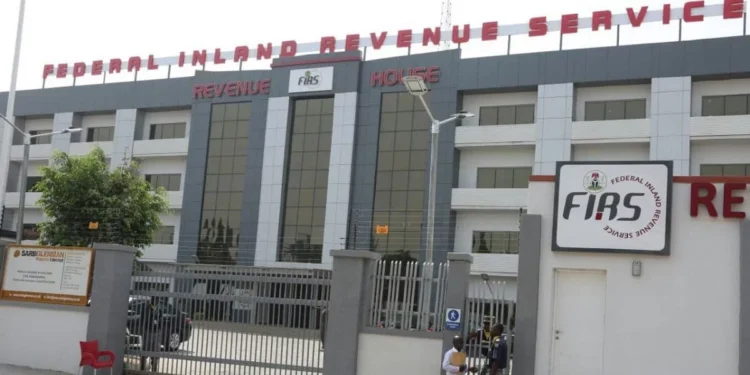The Federal Inland Revenue Service (FIRS) has directed banks, stockbrokers, and other financial institutions in Nigeria to begin deducting a 10 per cent withholding tax on interest earned from short-term securities. The move marks a major policy shift in the country’s financial and investment landscape, as such instruments were previously exempted from tax to encourage investor participation and deepen the local capital market.
In a new circular signed by the Executive Chairman of FIRS, Dr. Zacch Adedeji, the agency explained that the directive applies to interest payments on treasury bills, corporate bonds, promissory notes, and bills of exchange, among others. The tax will be deducted at the point of payment and remitted directly to the Federal Government through the FIRS.
According to the circular, the new rule is in line with Sections 78(1) and 81(1) of the Companies Income Tax Act (CITA), as amended, and also aligns with the 2024 Withholding Tax Regulations. The directive aims to strengthen tax compliance, expand the revenue base, and ensure fairness in the country’s fiscal system.
The FIRS clarified that the 10 per cent withholding tax applies only to short-term investment instruments and will not affect interest earned on federal government bonds, which remain exempt from taxation. The agency also noted that investors who have taxes deducted from their returns will be entitled to tax credits, unless the deduction is considered a final tax, as stipulated under Nigerian tax laws.
Dr. Adedeji emphasised that all relevant institutions — including banks, discount houses, stockbrokers, corporate bond issuers, and primary dealer market makers (PDMMs) — must comply with the directive to avoid penalties and interest charges for non-compliance. He stated that the FIRS is determined to enforce transparency in the deduction and remittance of withholding taxes on all applicable transactions.
“All relevant interest payers are required to comply with this circular to avoid penalties and interest as stipulated in the tax law,” the FIRS Chairman warned.
The FIRS also reminded financial institutions that withholding tax is not a new tax but an advance tax payment deducted at source from specific transactions, including rent, dividends, interest, and royalties. The payer is required by law to remit the tax to the FIRS within a stipulated timeframe.
Under Nigeria’s current tax framework, withholding tax rates are as follows: 10 per cent on rents, 10 per cent on dividends or company profits, 10 per cent on interest from bank deposits or securities, and 5 per cent on royalties.
The introduction of the withholding tax on short-term instruments could have far-reaching implications for the Nigerian capital market, particularly for investors and fund managers who have traditionally favoured treasury bills and corporate bonds due to their competitive yields and relatively low risk. Analysts believe the new measure could slightly reduce net returns on short-term investments but may also contribute to a fairer and more predictable tax environment.
Historically, short-term bills have attracted institutional and retail investors seeking quick returns. However, the new 10 per cent deduction may prompt a shift in portfolio strategies, as investors weigh after-tax yields against alternative opportunities such as equities, mutual funds, and longer-term instruments that may offer higher post-tax returns.
Financial analysts say while the directive may initially dampen investor appetite for some fixed-income instruments, it could improve government revenue mobilisation and enhance fiscal stability at a time when Nigeria is seeking to diversify income sources beyond crude oil.
FIRS officials said the policy is also part of ongoing efforts to modernise the country’s tax administration and close loopholes in revenue collection. The agency’s recent reforms have focused on digitalising tax processes, expanding compliance monitoring, and encouraging voluntary compliance among individuals and corporate entities.
The circular also reassures taxpayers that the FIRS will ensure transparency, accountability, and proper documentation of all withholding tax deductions. It added that taxpayers will receive credits for taxes withheld, which can be used to offset future tax liabilities.
Dr. Adedeji has repeatedly stated that the FIRS is not introducing new taxes but ensuring that existing laws are properly implemented. He noted that efficient tax administration remains a cornerstone of President Bola Tinubu’s economic reform agenda, which seeks to broaden Nigeria’s non-oil revenue and reduce dependence on borrowing.
As of press time, the FIRS did not release official revenue projections from the new measure. However, experts believe it could generate significant inflows for the government, given the size of the short-term investment market in Nigeria’s financial system.
The latest directive signals a stronger drive by the FIRS to enforce compliance and align Nigeria’s tax regime with global standards. It also underscores the government’s determination to improve fiscal sustainability while balancing the interests of investors and financial institutions.
